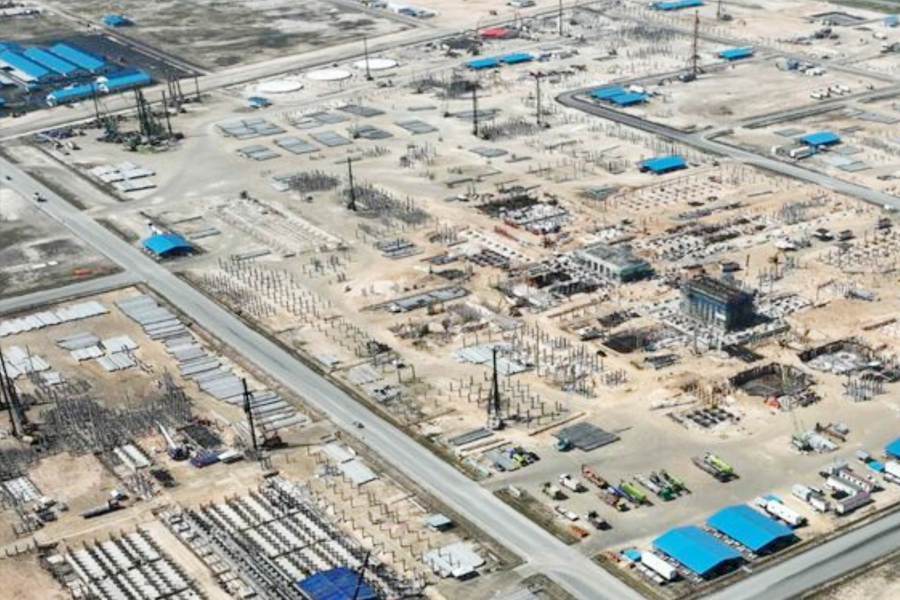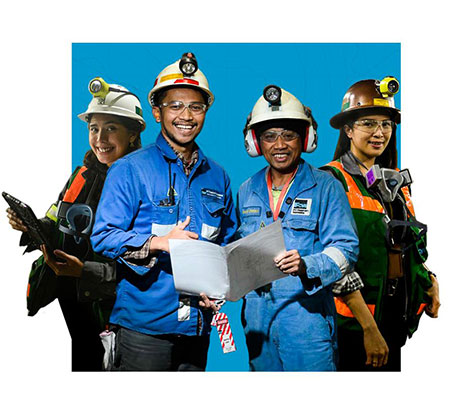28 September 2022

Developing downstream industries for natural resources is said to factor in boosting Indonesia’s current economy. As such, the government has put a ban on export of a mineral in its raw form, namely nickel. The decision will be followed with a ban on crude bauxite exports in 2022, and another on tin, effective in 2023.
Minister of Investments/ Head of Investment Coordination Agency BKPM Bahlil Lahadalia says the bans are part of a measure to carry out downstream processes in the country. The goal is to gain a high level of added value and create jobs for Indonesians.
Bahlil pointed to the move by PT Freeport Indonesia (PT FI) to develop the world’s biggest copper smelter and precious metals refinery in the JIIPE Special Economic Zone (KEK) located in Gresik Regency, East Java, that merits commendation.
He said Indonesia’s capacity to manage a world-class mineral processing facility will leverage the country’s global bargaining power. We will demonstrate that we can conduct proper management of our own resources within the country, Bahlil had asserted some time ago.
Bahlil said currently downstream industries in Indonesia are on track. He had disclosed in 2017 that Indonesia’s trade deficit vis-a-vis China amounted to US$ 18 billion and in 2021 a US$ 2.5 billion deficit remained.
But in the first semester of 2022, Indonesia posted a US$ 1 billion surplus in its trade balance with China, and overall Indonesia succeeded in posting a US$15.55 billion trade surplus, he disclosed.
The government, he continued, immediately conducted various measures to push for minerals downstreaming, among others through setting to rights export policy and awarding investment incentives.
Towards reorganizing export policy, the government would only allow business that have a smelter in place or that are in the process of developing a domestic smelter with 80 percent progress achieved to carry out exports.
The next move was to award incentives to businesses undertaking downstream activity in the minerals sector, including the processing of tin. Meanwhile capital expenditure for tin production was less costly than building a downstream industry for nickel.
Bahlil understood the aspirations of tin businesses in proposing for the downstreaming of tin to be implemented gradually. As a former nickel mine operator himslef, he conceded the export ban would incur massive losses, but he also realized it was high time for Indonesia to develop its own downstream industries.
The mineral commodity tin would be similarly subject to the ban on export of raw minerals that would become effective in late 2022, but downstream development is urgently needed. Notwithstanding the fact that Indonesia is the world’ second biggest producer of tin after China.
Maximized Benefits
The government also continues to encourage value addition programs through downstream mineral activity that will maximize benefits to achieve Indonesia’s economic growth.
Minister of Energy and Mineral Resources Arifin Tasrif says downstream industry needs to be optimally developed in order to supply basic material for industry development.
It will not suffice for downstream mineral activity to only produce semi-finished products. Development should be maximized in order to produce basic material to be supplied for production of fully finished products in their final stage of development, Arifin had stated not long ago.
As such, smelter production must be addressed and supported by the government and other stakeholders towards realizing proper development progress. Meaning that sustainable synergy and collaboration are needed to optimize the mineral downstreaming process.
He further added, Indonesia has a comparative advantage in owning natural resources, specifically reserves of minerals such as nickel and cobalt, these minerals provide raw material utilized in the development of environmentally friendly electric vehicles.
He said this advantage can be [processed into final products in support of the transition of energy development from fossil fuels to bring about clean energy for the future.
Gadjah Mada University (UGM) economic commentator Fahmy Radhi says the smelter being built in the JIIPE special economic zone will contribute significantly to Indonesia’s economic growth.
Added value from production of gold will provide significant contributions to the Indonesian economy centrally and in the region of Papua, Fahmy says.
Fahmi said previously PT FI was exporting concentrate for not having its own smelter in place. Moreover, Indonesia was hardly benefiting from PT FI’s gold production as the smelting of concentrate was performed in overseas smelters.
Abundant production of gold led out of the successful acquisition of a 51% stake, of which one of the conditions entailed was domestic smelter development, he disclosed.
Other smelter development is being undertaken by state mining industry holding Mind ID. The corporation is working to drive operation of a Smelter Grade Alumina Refinery (SGAR) in West Kalimantan.
MIND ID Director of Operations and Production Danny Praditya says as the mining industry holding, the company is committed to remain on track with regard to downstream industry development and will continue to place priority for this commitment notwithstanding challenges encountered.
As a holding we want this endeavor to continue, MIND ID will continue to push PT BAI through Inalum and Antam, to fully complete what it began. 14.56% progress has been achieved, as Danny asserted during a public hearing with House of Representatives Commission VII.
Kami menghimbau para pencari kerja untuk berhati-hati dan mewaspadai beragam modus penipuan perekrutan yang mengatasnamakan PT Freeport Indonesia. Dalam setiap proses rekrutmen dan penerimaan karyawan, PT Freeport Indonesia maupun konsultan rekruitmennya tidak memungut biaya apapun.
Untuk melihat lowongan, silakan akses melalui link berikut: ptfi e-recruitment
Untuk melihat informasi magang, silakan akses melalui link berikut: Internship Program
